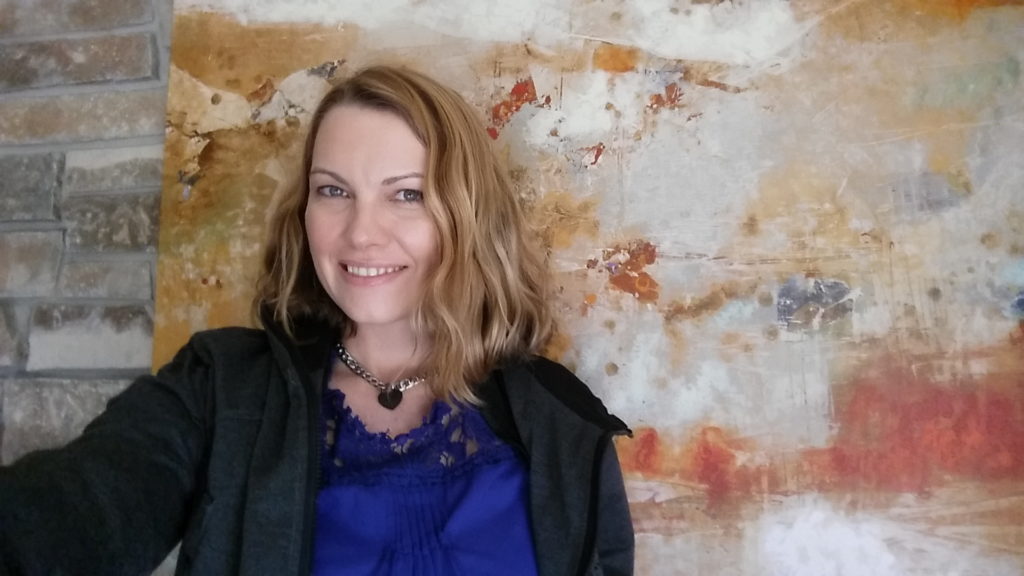When the author met her biological father, something shifted deep in her core.
By Laura McMillian
As a teen, I’d once imagined I had a secret identity. Little did I know that I was right.
All my life, I’d learned to live with what could be described as a pervasive form of impostor syndrome — a sense that I was never fully able to know or be myself, whoever that was. Sure, I recognized certain stable personality traits in myself, such as kindness, rationality, humble priorities, and interest in the well-being of others. But they weren’t enough for me to fully know who I was on a gut level. I could also list all the factual pieces of information about myself, including the good, the bad, and the neutral — my ethnicities, behavioral and emotional tendencies, intellect, biases, tastes, political and religious views, and personal principles. But the sum of these facts never quite added up to me feeling like a full person.
I craved an understanding of the core aspects of myself and sought it by asking my parents about themselves and their family histories and by trying to understand my psychology and physiology through clinical testing and professional feedback. Still, something was always missing. Why? How could I fill it in and gain the self-confidence I should have had? The mysterious identity gap had me grasping at straws for all my young adult and adult life.
As I became older, the identity gap closed a little bit, and by the time I was in my mid-thirties, I might have felt as if I were 80% of a complete, knowable person. That missing 20% remained like a chronic pain I’d learned to live with and was resigned to always having. I still suffered from confusion in my career and relationships, and there seemed to be no answer or solution. But being stubbornly genuine, I never put up a false persona so that others could more easily grasp me. Those who did grasp and befriend me seemed to share a similar sense of alienation.
When I was 34, a 23andMe DNA test revealed that I was not genetically related to my dad, leading me to conclude that I had likely been donor conceived. Once I overcame the initial shock and denial, I felt as if a new door had opened. Finally, there was hope for a way out of my inexplicably confused sense of self. I’d always loved my dad and never suspected or hoped not to be related to him, but I chose to view this development in as positive a light as possible. This new knowledge offered me the chance to get answers about why I was the way I was — why I was different in personality and thinking style from the parents who raised me. Generational difference was never a sufficient explanation. Being donor conceived absolutely was.
The drive to identify half of my origins came over me like a tornado; this new and all-consuming obsession swept up everything in my world. The human mind naturally seeks completion, and mine very badly wanted it. For three years, I underwent trials and tribulations that failed to give me definite answers.
Finally, when my biological father appeared in my AncestryDNA test match list, I was able to walk through the door that had opened three years earlier. His four daughters, who didn’t know he’d been a sperm donor, had purchased the test as a gift, ironically, for Father’s Day. He hadn’t been expecting to discover offspring; he’d simply been looking to further explore his genealogy. Just as I had done, he reacted with denial and skepticism. But once the reality settled in, he was very excited to have found me and happy to get to know me.
The hopes that had been raised by deducing that I’d been donor conceived were fulfilled by getting to know my biological father. It’s been a wonderful and remedial experience, not only because he’s an incredibly kind and warm person, but also because learning about my genetic paternal origins has changed me for the better. After first spending time with him, I immediately felt a shift at my core. At age 37, that ineffable part of myself that had always felt missing finally appeared in its proper place. It felt as if something at the back of my mind was finally healing. There was both emotional relief and a physical sensation of calm — an unprecedented feeling of serenity and wholeness. I think my levels of oxytocin (the cuddle hormone) went through the roof during that trip, just from being with him. Before, I’d felt like a house with only half a foundation. Now, with a whole foundation, I feel complete and stronger than ever.
One of the clearest changes relates to how I deal with difficult people. In the past, when people were at odds with me in any way, my sense of self felt threatened, as I was easily thrown off balance. I avoided confrontation at almost all costs, with the exception of those rare occasions when I was completely confident about my position. I was afraid of being tongue-tied due to all the second-guessing and self-doubt, too easily believing others’ insulting statements or comments intended to correct my errors, at least until I later analyzed the situation. Speaking out usually wasn’t worth the risk, and I missed out on some important opportunities to stand my ground. I thought I’d always be that way, no matter how much therapy or self-development work I did. But now that I’m certain of who I am, my sense of self is tethered in place, allowing me to stand firmly when I’m challenged or mistreated. Or, if I really am wrong about something, I’m more comfortable accepting and admitting it, then moving on. This actually makes me more relatable and likable to others. While I try to choose my battles wisely and to be tactful, I’m no longer frightened by challenging conversations. For the first time, expressing myself is starting to feel completely natural and comfortable. I’m unafraid to be fully assertive, and even my professional confidence has improved. Putting myself out there isn’t so scary anymore. The self-consciousness and excessive self-inhibition have evaporated.
Not only were these changes instantaneous, but they’ve also been enduring and will likely last for the rest of my life. I’ll always be grateful for my biological father’s warm reception, alongside my upbringing by loving parents.

Laura McMillian, PhD, CPC, ACC, is a certified professional coach who provides services to donor conceived individuals, donors, and parents. She lives in Hideout, Utah with her loving spouse Kevin and their 3 small dogs. Learn more about her practice here.

